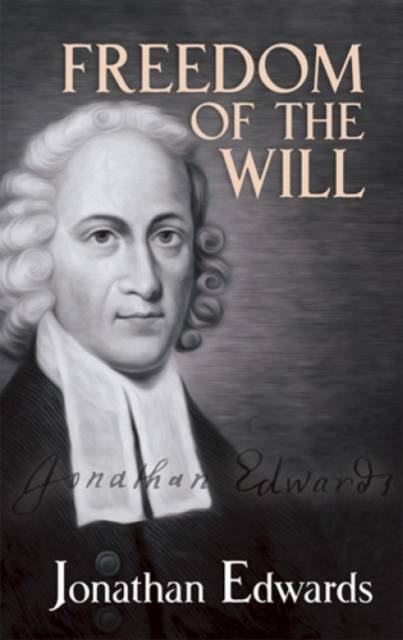
Bedankt voor het vertrouwen het afgelopen jaar! Om jou te bedanken bieden we GRATIS verzending (in België) aan op alles gedurende de hele maand januari.
- Afhalen na 1 uur in een winkel met voorraad
- In januari gratis thuislevering in België
- Ruim aanbod met 7 miljoen producten
Bedankt voor het vertrouwen het afgelopen jaar! Om jou te bedanken bieden we GRATIS verzending (in België) aan op alles gedurende de hele maand januari.
- Afhalen na 1 uur in een winkel met voorraad
- In januari gratis thuislevering in België
- Ruim aanbod met 7 miljoen producten
Zoeken
Omschrijving
One of America's preeminent philosophical theologians, Jonathan Edwards (1703-58) was a central figure in New England's first Great Awakening. Famed for his stirring sermons, Edwards remains a significant influence on modern religion, and this in-depth analysis of Calvinist beliefs represents his most important contribution to Christian thought.
Romans 9:16 ("It is not of him that willeth") serves as the text for Edwards' examination of the nature and state of man's will. Written in 1754 while the author served as a missionary to Native Americans, this polemic raises timeless questions about desire, choice, good, and evil. Edwards contrasts the opposing Calvinist and Arminian views of free will and addresses issues related to God's foreknowledge, determinism, and moral agency. His copious quotations from scripture, along with citations from the works of Enlightenment thinkers, support a thought-provoking exploration of mankind's fallen state and the search for salvation.
Romans 9:16 ("It is not of him that willeth") serves as the text for Edwards' examination of the nature and state of man's will. Written in 1754 while the author served as a missionary to Native Americans, this polemic raises timeless questions about desire, choice, good, and evil. Edwards contrasts the opposing Calvinist and Arminian views of free will and addresses issues related to God's foreknowledge, determinism, and moral agency. His copious quotations from scripture, along with citations from the works of Enlightenment thinkers, support a thought-provoking exploration of mankind's fallen state and the search for salvation.
Specificaties
Betrokkenen
- Auteur(s):
- Uitgeverij:
Inhoud
- Aantal bladzijden:
- 272
- Taal:
- Engels
Eigenschappen
- Productcode (EAN):
- 9780486489209
- Verschijningsdatum:
- 13/06/2012
- Uitvoering:
- Paperback
- Formaat:
- Trade paperback (VS)
- Afmetingen:
- 135 mm x 213 mm
- Gewicht:
- 294 g

Alleen bij Standaard Boekhandel
+ 27 punten op je klantenkaart van Standaard Boekhandel
Beoordelingen
We publiceren alleen reviews die voldoen aan de voorwaarden voor reviews. Bekijk onze voorwaarden voor reviews.









